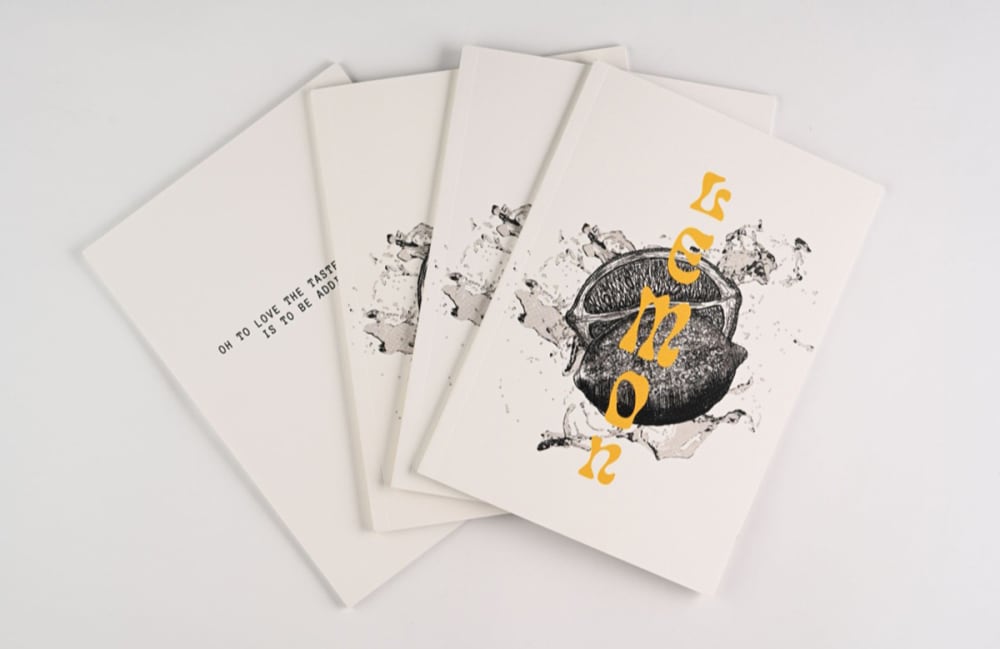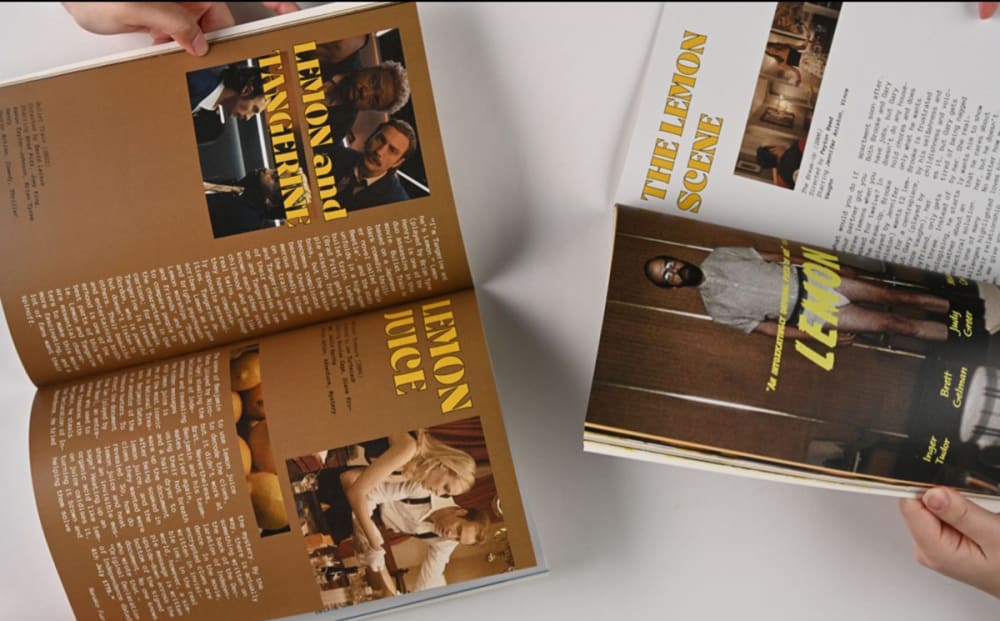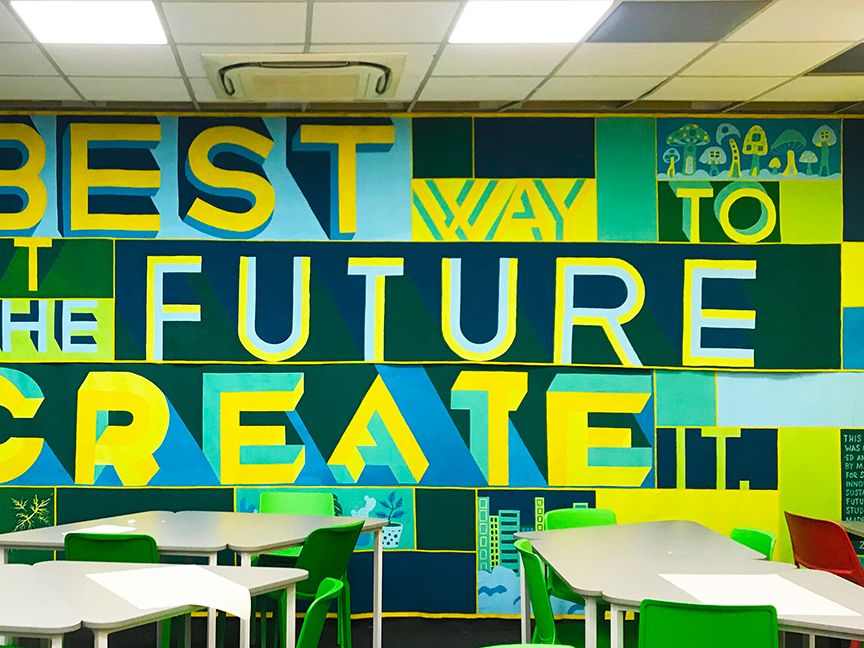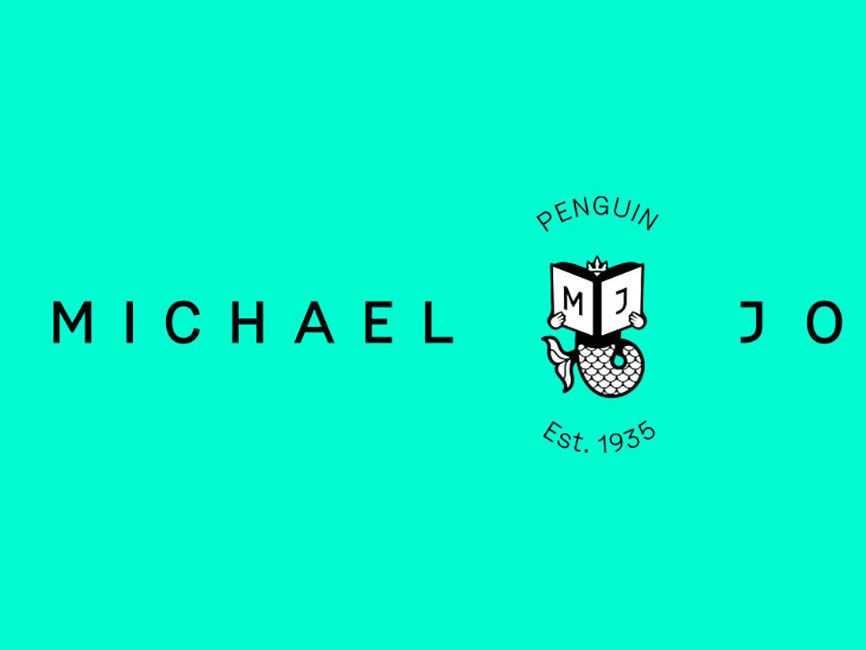
London College of Communication supports next generation of publishers through Whitefox mentorship

- Written byChloe Murphy
- Published date 09 November 2023

As our students and recent graduates prepare for the next chapter of their creative careers, learning how to navigate new responsibilities and environments becomes increasingly key to their future success.
One of the most vital forms of support for emerging creatives can be found in the networks they begin to build throughout their areas and industries of interest. Connecting with professionals who generously provide their time and resources enables them to complement their academic learning with practical knowledge and skills, and provides the confidence they need to begin making an impact in their chosen career.
At London College of Communication (LCC), our Graduate Futures team are committed to facilitating working relationships between students and industry, with activities ranging from business incubation support to portfolio reviews.
A core element of their support package is their Industry Mentoring Programme, which connects current students and recent graduates to established creatives working across Design, Media and Screen who are able to provide guidance specially tailored to the individual aspirations and objectives of their mentees. Over the past 3 years, Graduate Futures have initiated additional industry mentorship opportunities alongside their existing established programme, and in 2023, collaborated with leading publishing agency Whitefox to support students passionate about entering the publishing field.
"Transform your idea into a successful book"
Established in 2012, Whitefox was developed around the founding principles that ‘everyone should have access to trusted talent and the opportunity to create exceptional books’. Representing the thriving world of independent publishing, the agency focuses on using creative collaboration to help independent authors bring their work to life.
Home to a network of over 2,000 freelancers from around the world, their team work across genres ranging from fiction and non-fiction to adult and children’s literature. From design to editorial, their work is underpinned by 4 core values:
- Quality, and a vision of producing beautiful, professionally edited books that stand out from the crowd
- Creativity, and a dedication to innovating and modernising the boundaries of independent publishing through access to contemporary and impactful resources
- Transparency, and a commitment to recommending the right services for the right project at the right budget
- Collaboration, and the provision of expert advice and expertise to develop a client’s draft manuscript into a book.
The Whitefox collaboration with LCC marks the latest in a series of creative mentorship programmes with established organisations, with previous initiatives held with organisations such as Penguin Michael Joseph and EY – all of which have not only provided students and graduates with vital industry insights, but have also enabled mentors to enhance their own skillsets as they help to shape the next generation of the creative industries.

“Offering insight and expertise while building confidence”
Publisher and CEO of Whitefox, John Bond, explained that working with LCC to facilitate a mentoring pilot has enabled the organisation to expand beyond traditional barriers to encourage a more diverse, inclusive range of professionals to enter the publishing industry.
“Whitefox was created with the aim of giving any writer or creator access to the very best professionals in publishing,” he said.
“At the same time, to support this, one of our key objectives has always been to encourage individuals from a range of different backgrounds to pursue their careers and encourage a greater diversity within the next generation of publishing talent – but this hasn’t always been easy within existing, traditional structures of legacy publishing.
“As such, we’ve worked on designing a programme that could add value and create greater general awareness of our industry and the scope of rewarding roles within it, addressing skill gaps and current barriers to entry.
“With the support of LCC, we hoped to connect with promising students who may not have been aware they had the existing skillsets to pursue these careers, or who were looking to acquire knowledge and experience on how to enter the industry either in-house or as a freelancer. We paired them with experienced publishing professionals from our network to act as mentors, offering insight and expertise while building confidence to pursue these careers if desired.
“We hope that we’ve been able to offer some inspiration and practical support at the beginning of their publishing journey.”
"Opening doors to possibilities"
Graduate Futures Manager at LCC, Luminita Molico, highlighted the fact that mentoring collaborations not only provide opportunities for observation and knowledge sharing, but also practical encouragement for graduates who are determined to make their mark on the world.
"Our Industry Mentoring Programme at LCC is more than just a bridge between academia and the professional world; it's a catalyst for transformation.
"Through our collaboration with Whitefox, the industry leader in the world of independent publishing agencies, we offer our students and recent graduates a unique opportunity to gain real-world insights and foster relationships with seasoned professionals.
"This not only enriches their educational experience but also empowers them to carve out successful and meaningful careers in the creative industries. It's about opening doors to possibilities and nurturing the talent that will shape the future of publishing and beyond."
We caught up with 1 of the pairs supported by the Whitefox mentoring initiative, MA Publishing student Leslie-Anne Abubakar and her mentor, editor Louise Tucker, to explore the relationship between editorial and empathy, the importance of taking tangible action and the value of taking small steps towards your professional goals.
Industry Mentoring Programme | London College of Communication
Leslie-Anne, why did you decide to participate in the Industry Mentoring programme, and what did you hope to achieve?
After taking creative writing for my undergraduate degree and publishing as my MA, I learnt that I was at a disadvantage in the industry I craved to be in simply because of how I looked.
Truthfully, as a person of colour, disparities in diversity and job opportunities were not new to me. Even still, I wanted to stand at the starting line with my peers with confidence. I wanted to be backed with the professional skills and experience that would allow me to stand out.
I hoped that through the Industry Mentoring Programme, I could learn ways to develop confidence in myself with the guidance and insight of someone who was already in the trade.

Louise, what drew you towards becoming a mentor?
As a book editor, I realised that many writers struggled to express themselves naturally with their own, authentic voice. Gradually, I started to mentor writers as I edited their work, and they found that my experience and empathy helped them to develop. A couple of years ago, I decided to deepen my knowledge by training as a professional coach and mentor with the Guildhall School of Music and Drama, and it was during this path to becoming an accredited practitioner that I discovered the Industry Mentoring Programme at LCC.
While I was editing for Whitefox, the organisation formed a partnership with the College and asked me to join their initial cohort of mentors. It was the perfect opportunity to work with students from diverse backgrounds wishing to learn more about the practicalities of the publishing industry. During a long publishing career, I’d worked in many capacities: from editorial researcher to editorial director in charge of setting up a London office for a German publisher and running my own company. Maybe, I thought, my experience and knowledge could help people in the first stages of their career?
In addition, I was committed to helping underrepresented groups in publishing, and was already working with the Jericho Prize for Black British writers. My Anglo-Indian background had made me determined to help those who sadly still face the discrimination my parents faced in the 1950s.

Leslie-Anne, what did you find most valuable from your mentoring experience?
Honestly, I think being so comfortable with Louise that I felt like I could come out with all my career goals even if I was confused about them. When I felt unsure of any steps I was taking to build up my professional profile - for publishing and as a writer - Louise listened to all my fears, and provided advice and gentle guidance about everything. By the end of the programme, I was seeing all my strengths and hardly any of the weaknesses I started with.
Another highlight was the mini SMART goals we set after every session, and the discussion of how I achieved them in the beginning of the next. I was able to actively - and tangibly - work towards my career plans while gaining valuable insight.
Louise, how have you been able to support Leslie-Anne throughout the programme?
My approach to coaching and mentoring is based on the belief that everyone has the resources in themselves to achieve their goals in their own way.
As a mentor, I act as a facilitator to help the mentee discover their own inner strengths and unique life-skills before we align them with their values and beliefs to find a path that suits them. As I’m also training as a counsellor, I have a very person-centred approach: everything is about the mentee, not me.
Leslie-Anne had very clear goals, which we discussed in our first meeting. There were 2 distinct areas that she wished to work on: the start of her publishing career and her work as a writer, so we decided to divide our sessions into some about publishing and others about writing. Although there was some overlap in terms of identifying strengths, skills and values, we maintained focus on each goal in the sessions.
Leslie-Anne put a great deal of work and focus into the sessions and achieved the actions we set in order to reach her goals. Mentoring is a 2-way process and works best when both people are in tune and do the work between sessions as well as during them. Leslie-Anne was proactive, establishing a writing pattern while taking the first steps to her brilliant publishing career.

Leslie-Ann, how will you take the lessons learned through mentorship forward into your own creative future?
I've learned that it takes action to move forward, even if an action seems small. Writing for 30 minutes before bed or going to an author's talk with a friend means that I’m still working towards my goals, and getting into the habit of continuously taking action builds confidence and comfort in my skills. I also realised that I need to have more belief in myself as Louise made me aware of positive skills I already had and how to utilise them.
I think the biggest career lesson I learnt throughout my mentorship was that wanting to be part of an industry that intrigues me it is great, but an industry that holds the same values and principles as I do is just as important.
Louise, how has taking part in the mentoring initiative helped you to grow as a creative professional?
I wish to thank Leslie-Anne for everything she has given me as a practitioner. It was wonderful to work with someone with so much talent, determination, dedication and sheer hard work. She gave me her energy and openness, making my work as a mentor a delight.
I grew in confidence as a mentor alongside Leslie-Anne, and learned how far someone can grow and develop in a relatively short space of time. Our work together has also helped me to achieve my full accreditation as a practitioner to Level 7 while also developing my personal practice too.

Leslie-Anne, why should other students take part in the Industry Mentoring Programme?
You have nothing to lose and so much to gain.
The chance to be mentored by someone in the industry you're interested is hard to come by. Your creative practice and confidence can only grow when you're supported by a professional who understands what you're going through - because they've been in your shoes.
Our Industry Mentoring Programme supports LCC students and recent graduates to explore potential career paths in the creative industries and beyond. If you're a creative professional interested in mentoring with us, find out more and register your interest for our upcoming programme cycle.
Related links:
- Explore our Industry Mentoring Programme.
- Learn more about our MA Publishing course.
- Find out more about the work of our Graduate Futures team.



